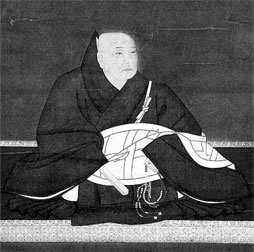The miracle of the wood
 Most crimes committed today indicate that the perpetrators have no
sense of impermanence. A man who robs a bank thinks that he could live
happily thereafter. Similarly, one who kills a man or woman to possess
their wealth has the false notion that he will enjoy the comforts of
life. What is happening today is a grim reminder that crime does not pay
and criminals get what they deserve. Most crimes committed today indicate that the perpetrators have no
sense of impermanence. A man who robs a bank thinks that he could live
happily thereafter. Similarly, one who kills a man or woman to possess
their wealth has the false notion that he will enjoy the comforts of
life. What is happening today is a grim reminder that crime does not pay
and criminals get what they deserve.
Most bank robbers are rounded up in a matter of days or weeks.
Killers face the same fate as they cannot escape the long arm of the
law. Sometimes, their houses are set on fire by irate neighbours,
disintegrating their families. Ill-gotten wealth does not bring
happiness as those who commit economic crimes will never live in peace.
Those who are contemplating to commit a crime should go into the
woods and observe the process of life and death. When trees grow old,
they shed their leaves. Their branches fall and begin to decay on the
ground. Even the very trunk of the tree, which was once the envy of
other trees, begins to feel the pangs of death. Insects and fungi begin
to attack the fallen tree and its roots.
Wealth
It is the same with human life. When we become rich and powerful, we
begin to think that nothing untoward would happen to us. What is more,
we begin to amass wealth. When we are powerful and wealthy, people crowd
round us for various favours. Then some of us lose our heads and think
we have become immortalised.
Some of us do not take our children to funerals. In fact, children
should be shown how people grow and die. They should experience and
understand the meaning of life and death. They should be shown the trees
in the woods beyond basking in the sunshine. Let them see the leaves
waving in the breeze and wild flowers blossoming in the distant bushes.
Let them also experience life unfolding in its myriad ways and coming to
an end.
 |
|
Rennyo: Nothing is more fragile and
fleeting in this world than the life of a person. |
As adults, we turn to Buddhist psychology that suggests the pattern
of our life. From our childhood, we learn how to flee from diseases,
decay and death. In fact, birth, sickness, old age and death all lead to
Dukkha which is an inevitable part of life. But we try to forget the
ugly aspect of life and cling on to things that give us temporary
pleasures. Being educated men and women, we create mental structures and
defences to avoid thinking of Dukkha.
Mysterious
The miracle of the wood is that life continues and flows in a
mysterious way. New trees replace old ones. Young animals replace the
old ones who die. Although trees and animals seem to have realised this
truth, humans have much difficulty in letting go. We do not want to give
up our precious possessions. In fact, we want to add some more to them.
Our cravings appear to be unlimited.
Experiencing the death of a close relative or friend is a strong
reminder of the uncertainty of life and the certainty of death. This may
give rise to a spiritual or psychological enlightenment. Whatever that
may be, the knowledge of death will remind us that life is something
unpredictable. We are not in control of our life. As Christians believe,
our destinies are guided by God’s immanent will.
In fact, we have waged a war against impermanence. In the past, we
had permanent secretaries in ministries. However, we soon realised that
even secretaries are impermanent! In our private life, we create an
illusion of permanence and try to be in control of everything that
matters to us. According to Buddhist psychology, we can banish this
illusion by letting go of our self-investment in worldly possessions. If
we can do it, we will see the radiance of life and the miracle of the
wood.
Middle way
In the affluent West, people hide their real feelings or allow them
to rule their life. However, the Buddhist approach is a middle way.
Buddhist psychology suggests that we should allow our feelings to flow
freely, but we should not get swept away by them. By holding on to
illusions of immortality, we waste much of our energy.
A letter written by a Japanese spiritual teacher Rennyo said,
“...nothing is more fragile and fleeting in this world than the life of
a person. Thus, we have not heard of a human life lasting for a thousand
years. Life swiftly passes and who among people can maintain his form
for even a hundred years?” |

